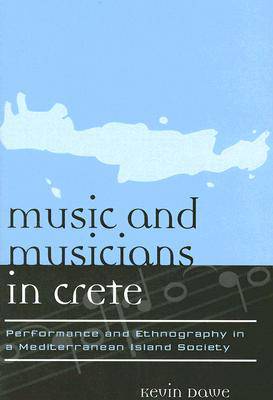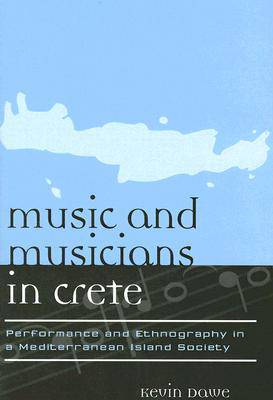
Bedankt voor het vertrouwen het afgelopen jaar! Om jou te bedanken bieden we GRATIS verzending (in België) aan op alles gedurende de hele maand januari.
- Afhalen na 1 uur in een winkel met voorraad
- In januari gratis thuislevering in België
- Ruim aanbod met 7 miljoen producten
Bedankt voor het vertrouwen het afgelopen jaar! Om jou te bedanken bieden we GRATIS verzending (in België) aan op alles gedurende de hele maand januari.
- Afhalen na 1 uur in een winkel met voorraad
- In januari gratis thuislevering in België
- Ruim aanbod met 7 miljoen producten
Zoeken
Music and Musicians in Crete
Performance and Ethnography in a Mediterranean Island Society
Kevin Dawe
€ 50,45
+ 100 punten
Omschrijving
This is the first detailed ethnographic study of lyra music and musicians in Crete, discussing the local music industry, teaching and performance infrastructure, repertoire, performance practice, gender and music, the role and significance of local musical instruments, poetry, dance, iconography, promotional materials, social change, globalization, world music, and diaspora.
Specificaties
Betrokkenen
- Auteur(s):
- Uitgeverij:
Inhoud
- Aantal bladzijden:
- 200
- Reeks:
Eigenschappen
- Productcode (EAN):
- 9780810860292
- Verschijningsdatum:
- 15/12/2007
- Uitvoering:
- Paperback
- Afmetingen:
- 156 mm x 228 mm
- Gewicht:
- 327 g

Alleen bij Standaard Boekhandel
+ 100 punten op je klantenkaart van Standaard Boekhandel
Beoordelingen
We publiceren alleen reviews die voldoen aan de voorwaarden voor reviews. Bekijk onze voorwaarden voor reviews.









